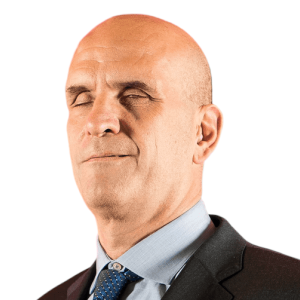The Politics of Populist Promises
Reduced economic insecurity generates not only a direct increase in demand for populist commitments but also a change in culture in the direction of lower trust and prevalent exclusionary rhetoric, which in turn are further indirect channels through which populist movements thrive

Populism is a loaded term, sometimes invoked to describe politicians or parties, at others to describe the attitudes of those who vote for them. Often when we express fear about populism being on the rise the perception is that we are discussing something other than economics and culture, a change in rhetoric and style or posture, more than something deeply rooted in facts.
I want to challenge this superficial view of populism, hopefully convincing the reader that what we are experiencing is a deep transformation of culture due to significant changes in economic insecurity, with populism functioning as a transmission mechanism.
The populism wave in many countries has much to do with economic insecurity, with its separate components: technological change, globalisation, inequality, immigration threats, and financial conditions.
Most importantly, economic inequality and insecurity drive the cultural equilibrium of many countries toward exclusionary rhetoric and attitudes, and ultimately into a crisis of culture.
Using primarily European Social Survey data from 2002 to 2020, one can see that drops in perceived economic security have always been followed by reductions in political participation (drop in turnout) and drops in trust in institutions and political parties.
We have shown that trust in politics and anti-immigration attitudes are affected by changes in economic insecurity.
Therefore, reduced economic insecurity generates not only a direct increase in demand for populist commitments but also a change in culture in the direction of lower trust and prevalent exclusionary rhetoric, which in turn are further indirect channels through which populist movements thrive.
In a representative democracy, we typically want to delegate some choices to expert political agents. In a context of lower generalised trust, voters prefer simple promises like Silvio Berlusconi's "Contract with the Italians," the Five Star Movement's untaxing commitments, "America First'' pledges for border protection, protectionism through tariffs, disengagement from international cooperation, and so on.
In my recent work, I provide evidence for this general shift towards "commitment politics," showing how such a shift in politics generates in turn other significant and sinister cultural changes, in the direction of hate toward experts, media, bureaucrats, judges, courts, and international institutions - an anti-illuminist drift.
Why the Right?
Multiple authors have stressed how globalisation, automation, and immigration threats have created a demand for protection against them, with political responses ranging from promises of a guaranteed minimum income of some left-wing populist movements to pledges to protect the leading culture of a country of the far-right movements.
In ongoing empirical work on the evolution of political parties in Europe, we see that the political response to changes in economic security has taken more frequently an identity and border protection form especially in countries with low fiscal space because the left-wing types of populist commitments are far more expensive for the state and hence also less credible or sustainable given European budget rules.
Thus, I believe that the demand for protection commitments against the perceived threats mentioned above is the first and most general change, due to drops in economic security and trust, while right-wing support comes primarily from the view that implementing policies of exclusion is more credible than the left's policies of inclusion.
lt is possible of course that the backlash against progressive inclusionary policies is purely cultural. This argument is mostly heard in the case of the US. However, I believe that exclusionary policies also reflect low trust in representative democracy.
In addition, politics can actively transform a problem of economic inequality into one of cultural divide. Greater inequality and insecurity for some classes or sectors create incentives for the rich to make an issue of protecting a country's cultural identity, to further decrease the incentives by the poor to demand more redistribution of wealth.
Paradoxically, the more segments of the ethnic majority of a country become poorer and/or more insecure about their jobs, the easier it becomes to push such segments to unite under an ethnic majority protection flag and simple exclusionary policies, rather than engaging in a complex process of redistribution. So polarisation increases but mostly along cultural and group identity lines.
What are the drivers of sentiment against experts, bureaucracies, an independent judiciary, and European institutions? The answer is simple: Given the lessening of trust in traditional institutions due to economic insecurity and other crises, there is a mounting demand for protection commitments. The parties who centre their strategy on populist commitments to protect do not want any of the above "agencies of restraint'' to block their promised commitments.
Judges can block deportation policies and bureaucrats and experts can stop or slow down the implementation of policies that contrast with the principles of good governance. Hence, the frequent associations of populism with those attitudes against checks and balances are completely rationalisable.
There is clear evidence that when populists win office in municipalities, they replace expert bureaucrats with loyal ones to maintain their electoral promises. Similarly, the depiction of EU institutions as an important obstacle to the protection of national interests has been a common trait of left and right populist movements in Europe.
The Dangers of Political Disintegration?
Nationalism is a real trap, because not only do we face many global challenges that would require a strong Europe, but also for purely economic reasons. With capital mobility and an already high taxation level in many European countries, there is very limited fiscal space for national economic welfare expansion.
Moreover, to the extent that nationalism goes hand in hand with exclusionary practices and rhetoric, it generates lower opportunities for gains from trade and cooperation with other cultures.
Some argue that this should not be a worry because political disintegration is more than compensated for by ecoomic integration. But the process of strengthening economic integration even as political disintegration grows is not sustainable because the latter leads to the exclusion of certain groups from the political process and thus to less economic integration. This, in turn, leads to cultural polarisation that weakens the growth of trade and cooperation in a society.
What can We Learn from History?
The rise of the People's Party in the US in the last decades of the 19th century has a lot of similarities with the current populism wave: If Today we say that workers in the manufacturing and service, white collar, and other sectors are threatened by automation and AI, agricultural workers back then faced pressure from far-away competitors due to the railroads and the invention of powerful refrigerators.
The meat packing industry became very concentrated given the lower costs of transportation and feasible transportation of frozen products, and the lower prices on most production markets called for larger-size farms. Small farmers and workers in non-competitive industries were the losers of the technological transformation and supported the new party that proposed policies like tariffs and protection from financial instability and high interest rates.
So, the combination of our time's globalisation and the financial crisis was experienced then resulting in the first case of populist protection demand and supply. Immigration, though, was less of a threat at the time, and also the financial situation affected farmers in a different way, mostly through interest rates leading to farm size restructuring.
A quote from The Wonderful Wizard of Oz, published in 1900, is illustrative of the hardships of the time:
"Dorothy lived in the midst of the great Kan sas prairies, with Uncle Henry, who was a farmer, and Aunt Em, who was the farmer's wife. Their house was small, for the lumber to build it had to be carried by wagon many miles. There were four walls, a floor, and a roof, which made one room; and this room contained a rusty looking cook stove, a cupboard for the dishes, a ta ble, three or four chairs, and the beds.
Uncle Henry and Aunt Em had a big bed in one corner, and Dorothy a little bed in another corner. There was no garret at all, and no cellar -except a small hole dug in the ground, called a cyclone cellar, where the family could go in case one of those great whirlwinds arose, mighty enough to crush any building in its path. It was reached by a trap door in the middle of the floor, from which a ladder led down into the small, dark hole.
When Dorothy stood in the doorway and looked around, she could see nothing but the great gray prairie on every side. Not a tree nor a house broke the broad sweep of flat country that reached to the edge of the sky in all directions. The sun had baked the plowed land into a gray mass, with little cracks running through it. Even the grass was not green, for the sun had burned the tops of the long blades until they were the same gray color to be seen everywhere."
After the cyclone, a metaphor for any crisis, one can see how the stereotype of the brainless farmer (the Scarecrow) and the heartless Tin Woodman gladly followed Dorothy in the hope of finding their brain and heart.
Most solutions during their journey carne from the silver shoes of Dorothy, perhaps symbolising the potential improvements in case the gold standard could be abandoned.
The People's Party gained a lot of support between 1892 and 1896 with a protectionist campaign and positions against the existing financial system.
What this historical comparison tells us is that phases in which technological change can cause economic insecurity for losers from the transformation can always generate political movements against the elites, the winners of the transformation. The normality of this needs to be understood, rather than focusing on the idiosyncratic features of this or that extravagant populist leader.
The difference is that in the US of the 19th century, the growth potential of markets was very large, and public welfare policies could become objects of confrontation between the two major parties.
Expansion westwards to seize new fertile land served as a pressure valve. There is no parallel to this today, adding to the popularity of exclusionary policies.
Observations for the EU
We are not in Kansas anymore. Global markets and global firms, require global institutions to manage them. This calls for large investments that are supported and maintained by taxes on individuals, firms, and nations. For them to make major decisions they need to be trusted and hence accountable. We need extensive social and associational bonds across national boundaries, and the EU has to create trust in its institutions by specialising in policies that would be unfeasible or inefficient at the national level. At the moment, we have an imbalance between global markets and challenges and almost exclusively national political institutions and accountability.
Corporate and capital taxation at the EU level is feasible and could result in resources for greater economic security of the bloc's citizens, for instance with the creation of an EU unemployment insurance program, while at the same time helping to reduce national labour income taxes. Such policies can generate trust and hope in supra-national institutions.
More generally, research on the interplay between social structure and policymaking suggests that the more a society is integrated, the more policymakers have incentives to expand trade and cooperation across groups. Any European policy or law aimed at the formation of inter-group bridging ties could be beneficial not only per se but also because of the consequent complementary incentives by policymakers to continue to build on such cooperations, a potential virtuous circle of a renewed integration culture based on cross-country trust.
In the last chapter of his book The Wealth of Nations (1776), which is considered the start of economics, Adam Smith warned us that at some point excessive inequality could jeopardise the moral values of a liberal society. Individuals no longer believing in upward mobility through ingenuity, prudence, and hard work could turn to hate the unreachable elites and against those viewed as challengers from below. This was seen as a real possibility even by one of the founding fathers of capitalism and liberal order.
The political vicious circles we are witnessing in the age of dangerous populist commitments could not have been anticipated by Smith. But they are in some ways an evolution of the dangers he warned of back then.
This article appeared first on European Voices

Reduced economic insecurity generates not only a direct increase in demand for populist commitments but also a change in culture in the direction of lower trust and prevalent exclusionary rhetoric, which in turn are further indirect channels through which populist movements thrive
IEP@BU does not express opinions of its own. The opinions expressed in this publication are those of the authors. Any errors or omissions are the responsibility of the authors.
